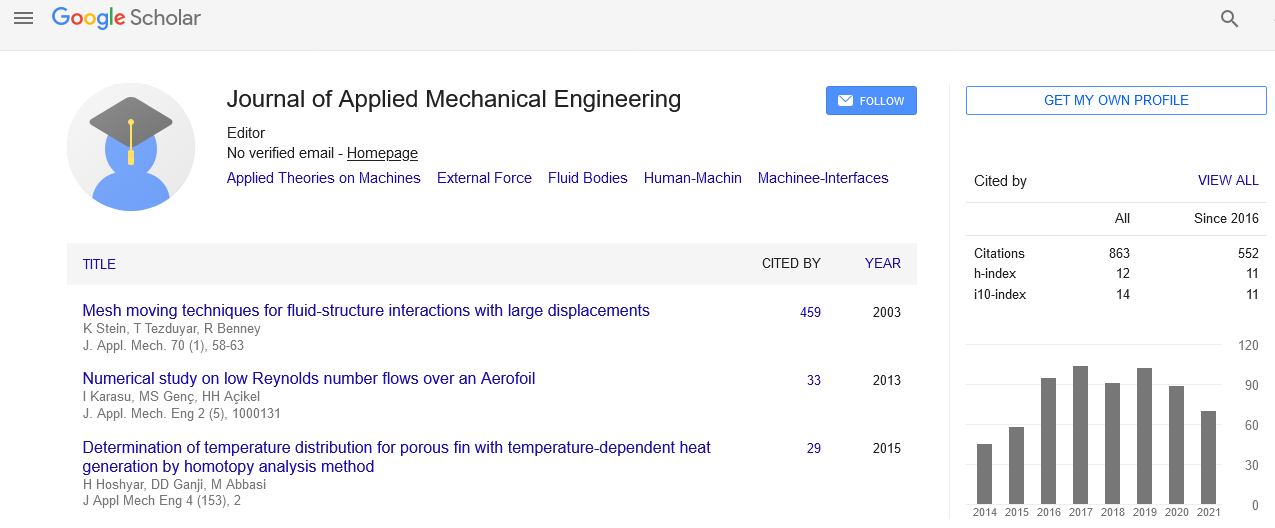Indexed In
- Genamics JournalSeek
- JournalTOCs
- CiteFactor
- RefSeek
- Hamdard University
- EBSCO A-Z
- OCLC- WorldCat
- Publons
- Google Scholar
Useful Links
Share This Page
Journal Flyer

Open Access Journals
- Agri and Aquaculture
- Biochemistry
- Bioinformatics & Systems Biology
- Business & Management
- Chemistry
- Clinical Sciences
- Engineering
- Food & Nutrition
- General Science
- Genetics & Molecular Biology
- Immunology & Microbiology
- Medical Sciences
- Neuroscience & Psychology
- Nursing & Health Care
- Pharmaceutical Sciences
Attitude dynamics and control of a charged spacecraft
International Conference and Exhibition on Mechanical & Aerospace Engineering
September 30-October 02, 2013 Hilton San Antonio Airport, TX, USA
Yehia A. Abdel-Aziz
Scientific Tracks Abstracts: J Appl Mech Eng
Abstract:
The attitude dynamics and control of a rigid spacecraft subject to gravity gradient and Lorentz torques in is considered. The Lorentz torque is developed on the basis of the electrodynamics effects of the Lorentz force acting on the charged spacecraft's surface. We assume that the satellite is moving in Low Earth Orbit (LEO) in the geomagnetic field which is considered as a dipole model. The proper model of the torque due to the Lorentz force is developed for a general shape of a spacecraft. The nonlinear differential equations of Euler are used to describe the attitude dynamics of a satellite. All equilibrium orientations are determined. Existence conditions of all equilibria are obtained and evolution of domain is investigated in detail. The numerical applications for certain operational satellites introduced a semi passive control of the attitude dynamics of a satellite. The way for such kind of control is to increase or decrease the electrostatic radiation screening of the satellite. Also the results confirm that the change in charge can affect the amplitude of the Lorentz torque, which may affect the spacecraft's control. Moreover, the relation between the magnitude of the Lorentz torque and different values of the inclination of the orbits are introduced. The stability of the attitude motion is investigated. Finally, we propose an attitude control method using the Lorentz force. Our method requires moderate charge level for future Lorentz-augmented spacecraft.
Biography :
Yehia A. Abdel-Aziz received his Ph.D. from Adam Mickiewicz University, Poland in December 2002. He has started his academic career in the Space Research Laboratory, NRIAG, Egypt since 1994. In 2008, he has got the rank of Associate Professor at NRIAG, Egypt. He is the Secretary General of the National Egyptian Committee of Space Research since 2005. He published more than 25 papers in reputable journals. His areas of interest include orbital mechanics, formation flying satellite, attitude dynamics and control of spacecraft, and space debris. Recently, he started work in the field of spacecraft charging. In 2008, he established the Ground Test Laboratory at NRIAG to study the interaction between spacecraft and space plasma. In December 2013 he is going to apply for the rank of full Professor of space dynamics.

